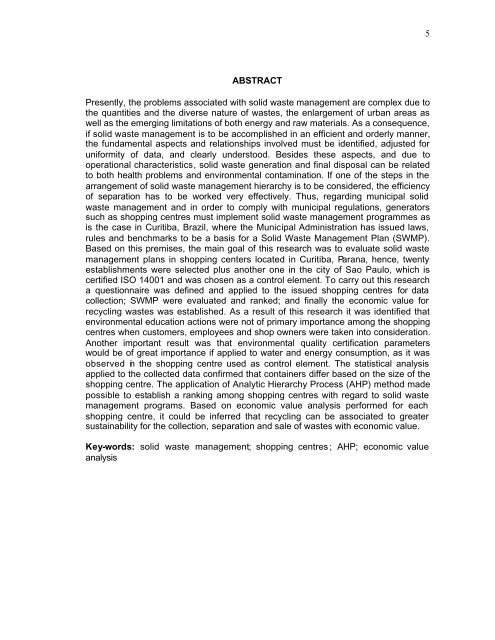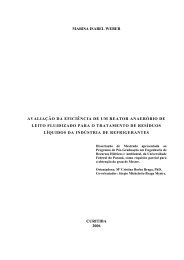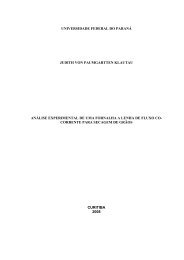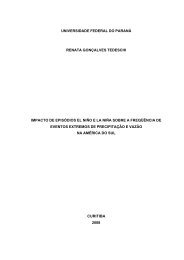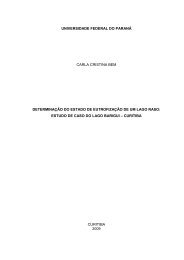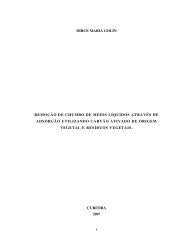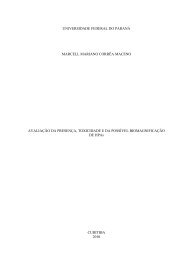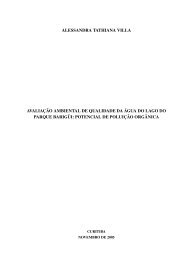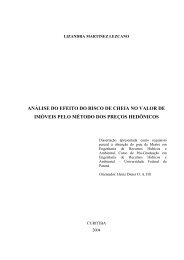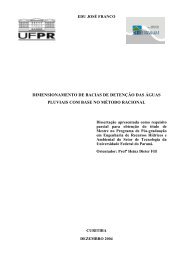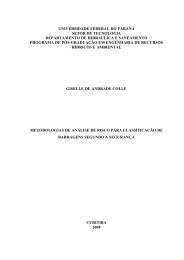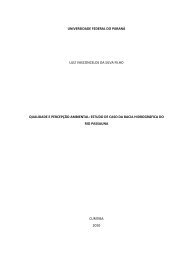Gestão de ResÃduos Sólidos em Centros Comerciais do MunicÃpio ...
Gestão de ResÃduos Sólidos em Centros Comerciais do MunicÃpio ...
Gestão de ResÃduos Sólidos em Centros Comerciais do MunicÃpio ...
Create successful ePaper yourself
Turn your PDF publications into a flip-book with our unique Google optimized e-Paper software.
5<br />
ABSTRACT<br />
Presently, the probl<strong>em</strong>s associated with solid waste manag<strong>em</strong>ent are complex due to<br />
the quantities and the diverse nature of wastes, the enlarg<strong>em</strong>ent of urban areas as<br />
well as the <strong>em</strong>erging limitations of both energy and raw materials. As a consequence,<br />
if solid waste manag<strong>em</strong>ent is to be accomplished in an efficient and or<strong>de</strong>rly manner,<br />
the fundamental aspects and relationships involved must be i<strong>de</strong>ntified, adjusted for<br />
uniformity of data, and clearly un<strong>de</strong>rstood. Besi<strong>de</strong>s these aspects, and due to<br />
operational characteristics, solid waste generation and final disposal can be related<br />
to both health probl<strong>em</strong>s and environmental contamination. If one of the steps in the<br />
arrang<strong>em</strong>ent of solid waste manag<strong>em</strong>ent hierarchy is to be consi<strong>de</strong>red, the efficiency<br />
of separation has to be worked very effectively. Thus, regarding municipal solid<br />
waste manag<strong>em</strong>ent and in or<strong>de</strong>r to comply with municipal regulations, generators<br />
such as shopping centres must impl<strong>em</strong>ent solid waste manag<strong>em</strong>ent programmes as<br />
is the case in Curitiba, Brazil, where the Municipal Administration has issued laws,<br />
rules and benchmarks to be a basis for a Solid Waste Manag<strong>em</strong>ent Plan (SWMP).<br />
Based on this pr<strong>em</strong>ises, the main goal of this research was to evaluate solid waste<br />
manag<strong>em</strong>ent plans in shopping centers located in Curitiba, Parana, hence, twenty<br />
establishments were selected plus another one in the city of Sao Paulo, which is<br />
certified ISO 14001 and was chosen as a control el<strong>em</strong>ent. To carry out this research<br />
a questionnaire was <strong>de</strong>fined and applied to the issued shopping centres for data<br />
collection; SWMP were evaluated and ranked; and finally the economic value for<br />
recycling wastes was established. As a result of this research it was i<strong>de</strong>ntified that<br />
environmental education actions were not of primary importance among the shopping<br />
centres when customers, <strong>em</strong>ployees and shop owners were taken into consi<strong>de</strong>ration.<br />
Another important result was that environmental quality certification parameters<br />
would be of great importance if applied to water and energy consumption, as it was<br />
observed in the shopping centre used as control el<strong>em</strong>ent. The statistical analysis<br />
applied to the collected data confirmed that containers differ based on the size of the<br />
shopping centre. The application of Analytic Hierarchy Process (AHP) method ma<strong>de</strong><br />
possible to establish a ranking among shopping centres with regard to solid waste<br />
manag<strong>em</strong>ent programs. Based on economic value analysis performed for each<br />
shopping centre, it could be inferred that recycling can be associated to greater<br />
sustainability for the collection, separation and sale of wastes with economic value.<br />
Key-words: solid waste manag<strong>em</strong>ent; shopping centres; AHP; economic value<br />
analysis


